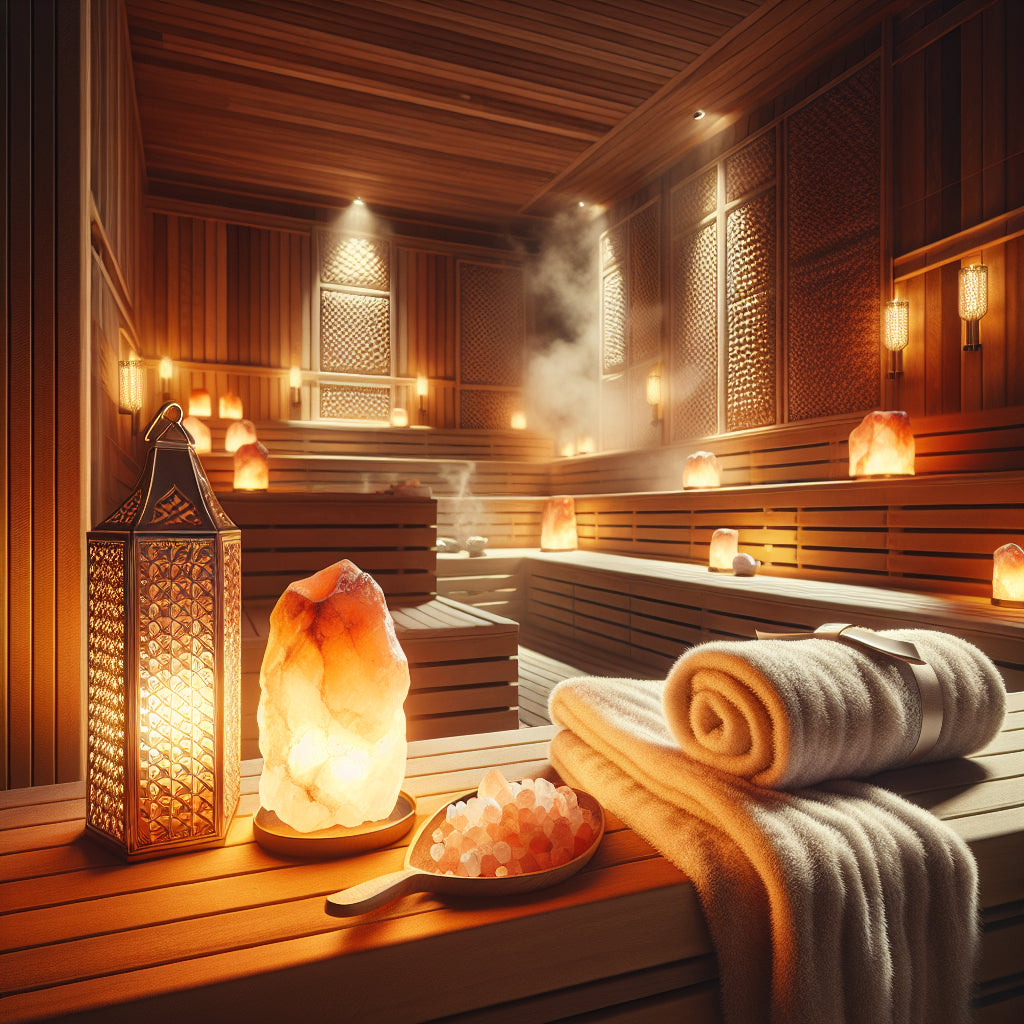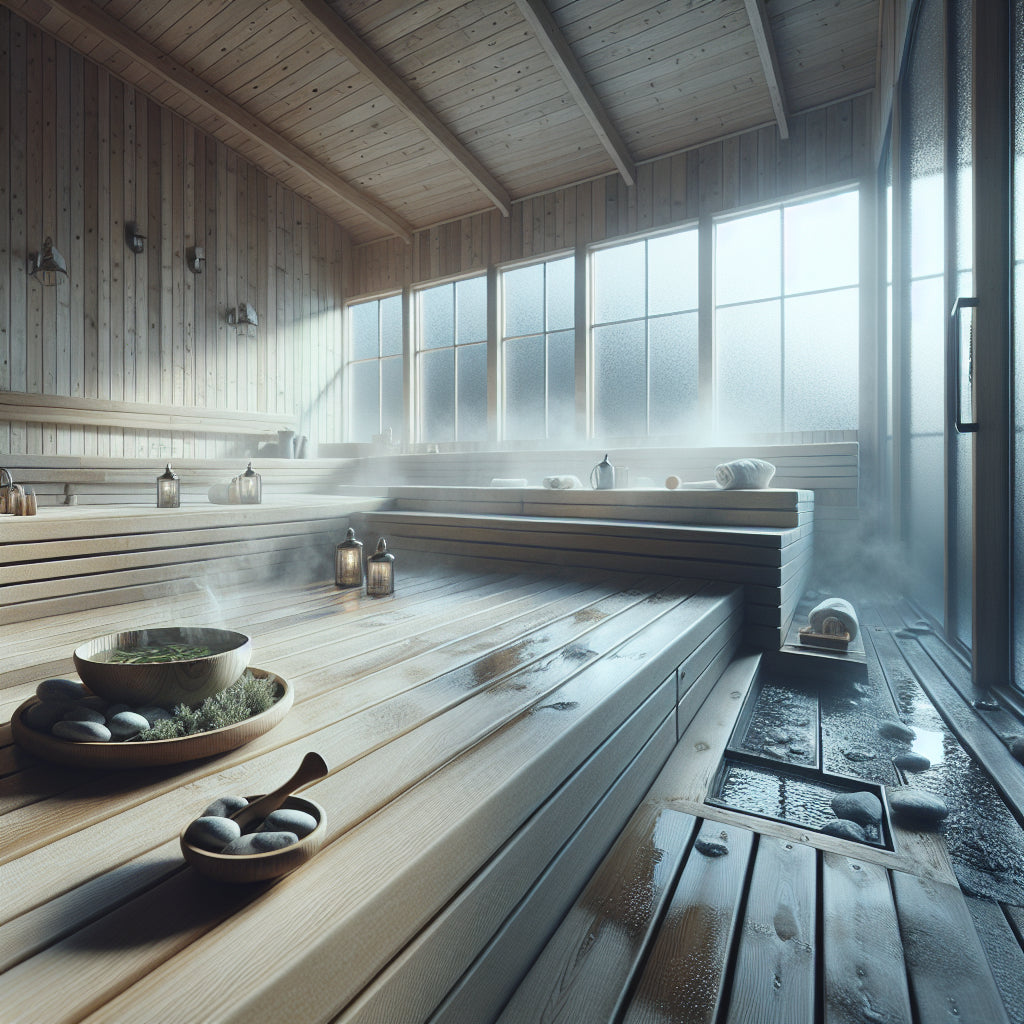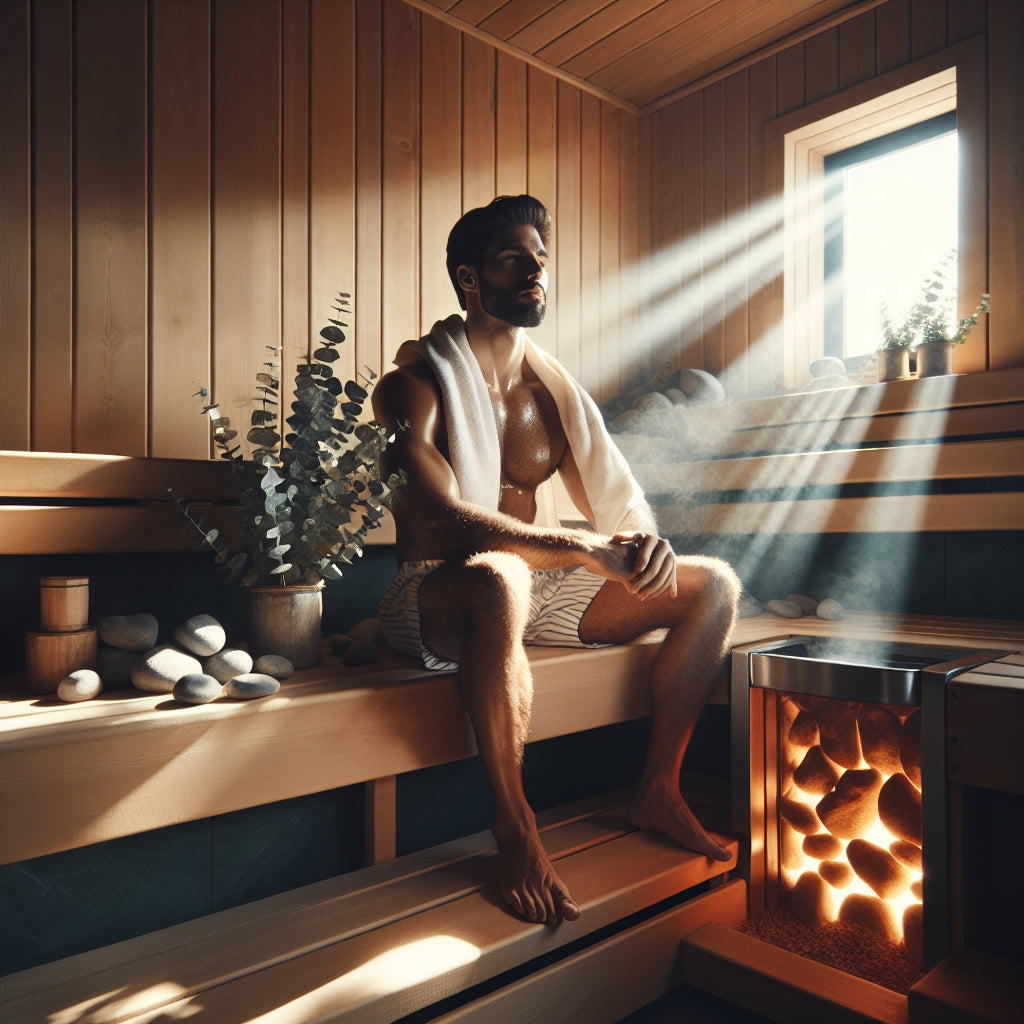The Enduring Legacy of Finnish Sauna Culture
The Finnish sauna is far more than a place to sweat—it represents a living cultural institution that has shaped Finnish identity for millennia. In December 2020, Finnish sauna culture earned recognition on UNESCO's Representative List of the Intangible Cultural Heritage of Humanity, cementing its status as a cornerstone of wellbeing, equality, and social connection. This ancient practice, with roots stretching back thousands of years, continues to offer profound health benefits supported by modern science, while maintaining its role as the spiritual and social heart of Finnish life.
Finnish Sauna History: From Smoke Saunas to Modern Wellness

Ancient Origins and Evolution
Archaeological evidence reveals that sauna-type structures have existed in Finland for over 2,000 years, evolving through distinct phases that mirror the nation's development. The earliest saunas were pit saunas—simple structures dug into hillsides or embankments, with heated stones creating steam in enclosed spaces. These primitive bathing houses represented more than hygiene; they were sacred spaces interwoven with spiritual beliefs and communal survival.
The traditional smoke sauna (savusauna) emerged as the quintessential Finnish bathing experience. Without chimneys, these saunas required stones to be heated for 6–8 hours while smoke filled the chamber. Once the stones reached optimal temperature, the smoke was vented, leaving behind gentle, long-lasting heat and a distinctive aroma that sauna enthusiasts still treasure today. Finnish and European heritage organizations note that saunas were often the first structure erected on a new homestead, functioning as multipurpose spaces for bathing, healing, childbirth, and even preparing the deceased for burial.
By the Middle Ages, sauna construction became more sophisticated, incorporating wooden benches and chimney systems that improved ventilation. The 19th and 20th centuries brought electric heating elements, democratizing sauna access beyond rural communities. Today's landscape includes traditional wood-burning saunas, electric saunas, and infrared chambers—yet the core Finnish sauna experience remains remarkably consistent with its ancient roots.
The Women's Sauna: A Feminist Perspective
Historical narratives often overlook the sauna's significance as a feminine space. European Heritage Days documentation highlights that Finnish sauna culture maintained "ancient regulations that aim at maintaining the balance between human life, nature, and the universe." Saunas served as liminal spaces for important life transitions—particularly for women. Pre-wedding sauna rituals, childbirth traditions (babies were historically born in the sterile heat of saunas), and symbolic passages to motherhood all took place within these sacred walls. This gendered dimension enriches our understanding of sauna culture beyond a monolithic cultural story.
Why Finnish Sauna Culture Earned UNESCO Heritage Status
In December 2020, Finnish sauna culture joined UNESCO's prestigious list of intangible cultural heritage, a recognition that underscores its extraordinary cultural significance. As UNESCO describes it: "Sauna culture in Finland is an integral part of the lives of the majority of the Finnish population… In a sauna, people cleanse their bodies and minds and embrace a sense of inner peace."
The International Sauna Association emphasized that "sauna bathing is an integral part of both everyday life and festivities as well as wellbeing and lifestyle for Finnish people. Sauna bathing underscores equality and mutual respect between people." Finnish Minister Annika Saarikko celebrated the designation, noting that "the sauna tradition is Finland's first element in the UNESCO Lists of Intangible Cultural Heritage… All sauna bathers can be proud of this."
This recognition reflects several key aspects:
A Basic Necessity, Not a Luxury: In Finland, saunas are considered essential infrastructure. With an estimated 3.3 million saunas for a population of 5.5 million—more saunas than cars—the practice permeates every level of society. Families, apartment buildings, summer cottages, corporate offices, and even the Finnish Parliament maintain saunas.
A Space of Equality: The sauna functions as a social equalizer where hierarchies dissolve. Whether corporate executives, politicians, or laborers, all enter the sauna on equal terms. Finnish and international sauna organizations emphasize that titles and status recede in the heat, fostering authentic conversation and strengthening communal bonds.
The Church of Nature: UNESCO's designation recognizes the sauna as a "church of nature"—a space for meditation, reflection, and spiritual cleansing that connects Finns to their environment and ancestral traditions.
Science-Backed Finnish Sauna Health Benefits
Modern research has transformed the sauna from folk remedy to evidence-based wellness intervention, with particularly robust findings from large Finnish population studies.
Cardiovascular Health and Longevity
The most compelling evidence comes from the work of Prof. Jari A. Laukkanen and colleagues at the University of Eastern Finland, who conducted extensive cohort studies tracking middle-aged Finnish adults over decades. Their findings reveal striking associations between frequent sauna use and reduced mortality:
- Frequent sauna bathing (4–7 times per week) is associated with approximately 63% lower risk of sudden cardiac death and about 50% lower risk of fatal cardiovascular disease compared with once-weekly use.
- Regular sauna use correlates with roughly 47% lower risk of developing hypertension, with mechanisms including improved autonomic nervous system balance, enhanced vasodilation, and reduced systemic inflammation.
- When combined with high cardiorespiratory fitness, frequent sauna use is associated with up to 69% lower cardiovascular disease mortality compared to low fitness and infrequent sauna use.
- A 2022 analysis confirmed that higher frequency and longer duration of sauna bathing link with reduced all-cause mortality and multiple non-fatal vascular outcomes.
As Laukkanen's research team concluded: "We have shown that having frequent sauna baths is strongly associated with a reduced risk of fatal cardiovascular outcomes and all-cause mortality."
Remarkably, a 2022 paper on socioeconomic status found that frequent sauna bathing may offset some mortality risk associated with lower socioeconomic status, suggesting sauna access could function as a public health intervention.
Mental Health, Stress, and Pain Relief
While cardiovascular evidence is most robust, emerging research explores sauna's effects on mental wellbeing:
- Reviews of heat therapy indicate that regular heat exposure can reduce somatic complaints and support stress reduction, though results for clinical depression remain mixed and appear dose-dependent.
- Randomized controlled studies of whole-body hyperthermia (often using infrared chambers) demonstrate clinically meaningful reductions in depressive symptoms over several weeks, suggesting plausible mechanisms for mood benefits from intense heat exposure.
- Pilot studies of individuals combining sauna with cold-water immersion report improved mood, reduced tiredness, and higher self-esteem, though these samples are small and results preliminary.
Other Physiological Benefits
Clinical and wellness reviews summarize additional effects, though many rely on smaller studies:
- Improved respiratory function, particularly beneficial for asthma and bronchitis sufferers
- Enhanced muscle relaxation and pain relief following exercise
- Potential improvements in sleep quality
- Possible cognitive benefits and reduced dementia risk (emerging evidence requiring further study)
Important Cautions and Limitations
Medical guidance emphasizes that while most people with stable cardiovascular disease can safely enjoy saunas, high-risk individuals should seek medical advice before use. Public health commentators note that much sauna research relies on observational data from relatively healthy Finnish populations—primarily men—limiting generalizability to other populations, women, and people with comorbidities. Results may not extend to other sauna types like infrared chambers. Anyone with unstable cardiac disease, uncontrolled hypertension, or pregnancy should consult healthcare professionals before sauna use.
Traditional Finnish Sauna vs Infrared Sauna
As wellness culture expands globally, understanding different sauna types helps consumers make informed choices:
| Sauna Type | Temperature | Humidity | Heating Method | Key Benefits | Best For |
|---|---|---|---|---|---|
| Traditional Finnish Sauna | 70–100°C (158–212°F) | Low–moderate (löyly steam from water on stones) | Wood or electric stove heating stones | Cardiovascular conditioning, muscle relaxation, cultural authenticity, robust evidence base | Traditionalists, those seeking Finnish-style rituals, strong heat tolerance |
| Smoke Sauna (Savusauna) | Similar to Finnish, slower heat build-up | Low | Large stone stove without chimney; smoke vented before use | Gentle, long-lasting heat, historic experience, distinctive aroma | Heritage enthusiasts, ritual experiences |
| Infrared Sauna | 40–60°C (varies by model) | Very low | Infrared panels heating body directly | Lower temperature tolerance required, potential pain relief, convenience, faster sessions | Heat-sensitive users, home wellness, busy schedules |
| Steam Room | 40–50°C with high humidity | High | Steam generator | Respiratory relief, skin hydration | Spa users, respiratory comfort seekers |
European market analyses show traditional saunas remain the largest revenue segment, but infrared saunas represent the fastest-growing category, reflecting consumer interest in gentler heat and integration into spa and biohacking protocols. Global sauna markets are projected to grow at approximately 5.8–6.2% CAGR through 2027–2030, with Europe accounting for roughly 37% of global revenues.
Sauna as Social Ritual: Strengthening Bonds and Community
Finnish sauna culture emphasizes communal experience over individual wellness. As Finland, Naturally explains: "The Finnish sauna is an essential part of our culture, deeply rooted in our traditions and daily life." The sauna serves as a central setting for family gatherings, friendship maintenance, and even business negotiations.
In Finland, sauna etiquette centers on respect, hygiene, and authenticity. Nudity is customary in traditional settings, reflecting vulnerability and equality. The practice of löyly—throwing water on heated stones to create steam—is considered both art and ritual, with experienced sauna-goers sensing the ideal moment and quantity. Conversation flows naturally in the heat, with social barriers lowered and genuine connection fostered.
Contemporary research confirms that sauna environments encourage authentic dialogue where hierarchies recede. This social bonding function explains why Finnish businesses, diplomatic services, and even political negotiations have historically incorporated sauna sessions—decisions made in the sauna carry particular weight and trust.
How Finnish Saunas Shaped Modern Wellness Trends
The global wellness boom has elevated Finnish sauna traditions to international prominence. Cultural writers like Mikkel Aaland, whose English-language essays on Finnish sauna are widely referenced, helped transmit this tradition beyond Nordic borders. Today's wellness retreats, biohacking protocols, and spa experiences increasingly incorporate sauna bathing, drawing directly from Finnish practices.
The infrared sauna market exemplifies this adaptation—offering gentler temperatures for users seeking perceived detoxification benefits and convenience. While traditionalists maintain that only löyly-steam saunas deliver authentic experiences, the diversification of sauna types has democratized access to heat therapy's benefits.
Incorporating Sauna Practices into Your Life
Whether you choose a traditional wood-burning sauna or modern infrared chamber, consider these evidence-based approaches:
For Beginners:
- Start with 5–10 minute sessions at moderate temperatures (70–80°C for traditional saunas)
- Gradually increase duration to 15–20 minutes as tolerance builds
- Always prioritize hydration—drink water before and after sessions
For Optimal Health Benefits:
- Aim for 2–4 sessions weekly (Finnish studies show maximum benefits at 4–7 times weekly)
- Allow cooling periods between rounds if doing multiple sessions
- Consider combining with cold water immersion for contrast therapy
For Mindfulness Enhancement:
- Use sauna time for meditation or reflection without digital devices
- Practice deep, rhythmic breathing to enhance relaxation
- Embrace silence or meaningful conversation over distraction
Safety Considerations:
- Avoid alcohol before or during sauna use
- Exit immediately if feeling dizzy, nauseous, or uncomfortable
- Consult healthcare providers if you have cardiovascular conditions, are pregnant, or take medications affecting thermoregulation
Frequently Asked Questions
Why is Finnish sauna culture on the UNESCO intangible heritage list?
UNESCO recognized Finnish sauna culture in December 2020 for its integral role in everyday life, festivities, wellbeing, equality, and intergenerational transmission. The designation emphasizes how saunas serve as spaces where Finns "cleanse their bodies and minds and embrace inner peace," functioning as markers of Finnish identity and social cohesion.
Is a Finnish sauna good for your heart?
Large observational studies from Finland suggest frequent sauna bathing (4–7 times weekly) is associated with significantly reduced risks of sudden cardiac death, fatal cardiovascular disease, and hypertension development. However, these are associations from observational research, primarily in middle-aged Finnish men. While encouraging, they don't prove causation, and individual responses may vary.
How often do Finns typically use the sauna?
Many Finns use saunas weekly or several times per week, with the most health-conscious individuals bathing 4–7 times weekly. Finland has approximately 3.3 million saunas for 5.5 million people—more saunas than cars—highlighting the practice's ubiquity across households, summer cottages, apartments, and workplaces.
What is the difference between a Finnish sauna and an infrared sauna?
Traditional Finnish saunas heat air to 70–100°C using wood or electric stoves that warm stones, creating löyly steam when water is applied. Infrared saunas use panels emitting infrared radiation to heat bodies directly at lower temperatures (40–60°C). Finnish saunas offer cultural authenticity and stronger cardiovascular evidence, while infrared saunas provide gentler heat and convenience for heat-sensitive users.
Were babies really born in Finnish saunas?
Yes—historical sources document that Finnish saunas frequently served as birthing spaces. The sauna's sterile heat, privacy, and availability of hot water made it ideal for childbirth. Heritage organizations describe how saunas functioned as multipurpose spaces for major life events, including births, healing rituals, and preparing the deceased.
What is the safest way to start using a Finnish sauna if I have a health condition?
Start with shorter sessions (5–10 minutes) at moderate heat, maintain excellent hydration, and avoid extreme temperatures. Most importantly, consult your healthcare provider before beginning sauna use if you have cardiovascular disease, hypertension, diabetes, or other chronic conditions. Research indicates stable cardiac patients often tolerate saunas safely, but individual assessment is essential.
Does sauna help with stress and mental health?
Emerging evidence from heat therapy studies suggests regular sauna use may reduce stress and somatic complaints. Some randomized trials of whole-body hyperthermia show meaningful reductions in depressive symptoms, though results vary by dose and individual factors. More high-quality trials are needed, particularly for anxiety and stress disorders. Many users report subjective improvements in mood and relaxation.
What is proper Finnish sauna etiquette regarding nudity and mixed-gender bathing?
Traditional Finnish sauna culture emphasizes nudity as the norm, reflecting equality and respect. Finns typically separate by gender in public saunas, while families bathe together privately. The focus remains on hygiene (showering before entering), proper löyly technique, and authentic conversation. If uncomfortable, wearing a towel is acceptable, though swimsuits are less common in traditional settings.
Experience Authentic Finnish Sauna Tradition
The Finnish sauna tradition represents humanity's enduring wisdom about wellness, community, and connection to nature. Whether drawn by cardiovascular benefits, stress relief, social bonding, or cultural curiosity, the sauna offers a profound practice that has sustained Finnish wellbeing for millennia.
Ready to bring this time-honored tradition into your life? Explore our collection of traditional Finnish saunas, modern hybrid systems, and premium sauna heaters designed to deliver authentic experiences.
Take the 1-minute sauna quiz to discover which sauna type matches your lifestyle, space, and wellness goals.
Further Reading
- Hybrid Sauna: Combining Traditional and Modern Wellness
- Unlocking the Power of Sauna for Recovery and Performance
- Gas Sauna Heater: Complete Buyer's Guide
- How to Build Your Home Sauna: Expert Tips and Design Ideas
Sources and References
This article draws on peer-reviewed research, UNESCO documentation, Finnish heritage organizations, and market analyses to provide accurate, evidence-based information about Finnish sauna tradition. Key sources include:
Academic and Medical Research:
- Laukkanen JA, et al. Cardiovascular and Other Health Benefits of Sauna Bathing. Mayo Clinic Proceedings, 2018
- Kunutsor SK, et al. Sauna bathing reduces the risk of stroke in Finnish men and women. Neurology, 2022
- Finnish cohort studies on sauna frequency, hypertension, and mortality outcomes
Cultural and Heritage Sources:
- UNESCO Intangible Cultural Heritage: Sauna culture in Finland (2020)
- Finnish Heritage Agency (Museovirasto) documentation
- International Sauna Association press materials
- European Heritage Days cultural narratives
Market and Wellness Industry:
- Grand View Research: European Sauna Market Analysis
- Global sauna and spa market projections (2022-2030)
For complete citations and source URLs, please refer to the research documentation.










Leave a comment
This site is protected by hCaptcha and the hCaptcha Privacy Policy and Terms of Service apply.